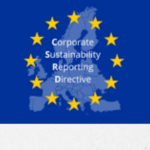FROM COP 28 TO ON-THE-GROUND REALITY: COLEAD WILL CONTINUE TO BUILD BRIDGES FOR MORE SUSTAINABILITY AND CLIMATE JUSTICE
- 21/12/2023
- Posted by: Gaetan Dermien
- Category: News

Acknowledging the profound effects of climate change on agriculture and food systems, particularly on the most vulnerable communities, and recognizing the pivotal role it plays both as a significant contributor to climate change and as a potential solution, COP28 has, for the first time, designated a specific day to focus on the issues of food and agriculture. Please click here to read the COP28 UAE Declaration on sustainable agriculture, resilient food systems, and climate action.
Today’s food systems account for nearly one-third of global GHG emissions. And three-quarters of these emissions are generated either within the farm gate or in pre- and post-production activities, such as manufacturing, transport, processing and waste disposal. The remainder is generated through land-use change at the conversion boundaries of natural ecosystems to agricultural land1. At the same time, we all acknowledge that the agri-food sector is crucial for many developing countries and a source of local and international opportunities. It supports economic growth, reduces poverty, contributes to strengthening food security, and provides jobs and income, particularly for women and young people.
That’s why COLEAD and its partners support the agricultural sector, and horticulture in particular, towards overall improved sustainability on the social, economic and environmental fronts.
Specific support to climate change adaptation and mitigation is embedded within COLEAD’s overall vision and approach on ‘Sustainable Agriculture’. In summary, COLEAD stresses that what is recognised to be sustainable in one context, may not be sustainable in another, where agroecological and socio-economic factors are very different. A one size fits all solution does not exist. In practice, this means COLEAD supports the transition to more sustainable agrifood systems by facilitating and promoting good practices that are recognised elements of agroecological systems, but which are tailored to the local context, orientated by the continual evaluation of performance metrics, and positioned within global market trends and requirements.
Concrete examples of support: timing and proportionality are crucial
Technical support provided as part of programmes such as FFM+ (funded by EU and OACPS) or NeXT Kenya (funded by EU) implemented by COLEAD contributes to climate change mitigation and/or adaptation through concrete actions in the field with agrifood MSMEs and farmers: enhancing water management to reduce methane emissions, improving straw and residue management to maintain soil fertility and carbon storage, optimizing fertilizer placement to minimize emissions, adopting new pest management practices, using drought-tolerant crop varieties, implementing low- or no-tillage farming, intercropping for soil health, promoting crop rotations and cover cropping, utilizing soil testing for targeted fertilizer application, spatially differentiating nitrogen supply, incorporating soil amendments, transitioning to climate-suited crops, adopting rainwater harvesting and efficient irrigation, scaling solar-powered irrigation, electrifying on-farm machinery and equipment, promoting agroforestry, improving loss management of produce, introducing mechanization to reduce food loss, and utilizing renewable materials and energy sources to minimize emissions associated with various agricultural practices.
The list of activities is long, and reflects the potential for more widespread adoption of sustainable agricultural practices. While we all recognise that we must do more, faster and on a larger scale, ensuring the appropriate timing and proportionality of measures undertaken in the fields to bring tangible socio-economic benefits to farmers and entrepreneurs is crucial, especially in the context of developing countries. Successful practices and innovations also need to be more systematically identified and communicated to inspire and embrace a path for continuous improvement towards sustainability. Partnerships with PAFO, IICA and the OECD contribute directly to reach this goal by showcasing success stories led by MSMEs and to disseminate key innovations and successful practices.
Vulnerable populations including farmers, are the most severely affected by extreme weather events induced by climate change
Signatory countries to the COP28 UAE declaration on sustainable agriculture, resilient food systems, and climate action, reaffirmed their respective commitments, collective and individual, to the 2030 Agenda for Sustainable Development, the UN Framework Convention on Climate Change and the Paris Agreement, the UN Convention on Biological Diversity and the Kunming-Montreal Global Biodiversity Framework, the UN Convention to Combat Desertification, and the Sharm El Sheikh Joint Work on implementation of climate action in agriculture and food security; as well as noting the UN Food Systems Summit.
In line with these commitments, COLEAD advocates for more policy coherence for development. As a recent example, Mrs. Morag Webb, COLEAD Head of Science and Policy, participated in a roundtable organised by the Fairmiles consortium, hosted by the University of Exeter, to discuss how we can take a fair approach to Net Zero that allows us to decarbonise fresh produce without stopping vital market access for developing world producers. Please click here to view the recording of the session.
1 Tubiello, F. N. et al. Greenhouse gas emissions from food systems: building the evidence base. Environmental Research Letters 16, 065007 (2021).



![EU and GB MRL changes in 2024 (May– August 2024) 9-FFM+-[ENG]](https://news.colead.link/wp-content/uploads/2024/06/9-FFM-ENG-150x150.jpg)
